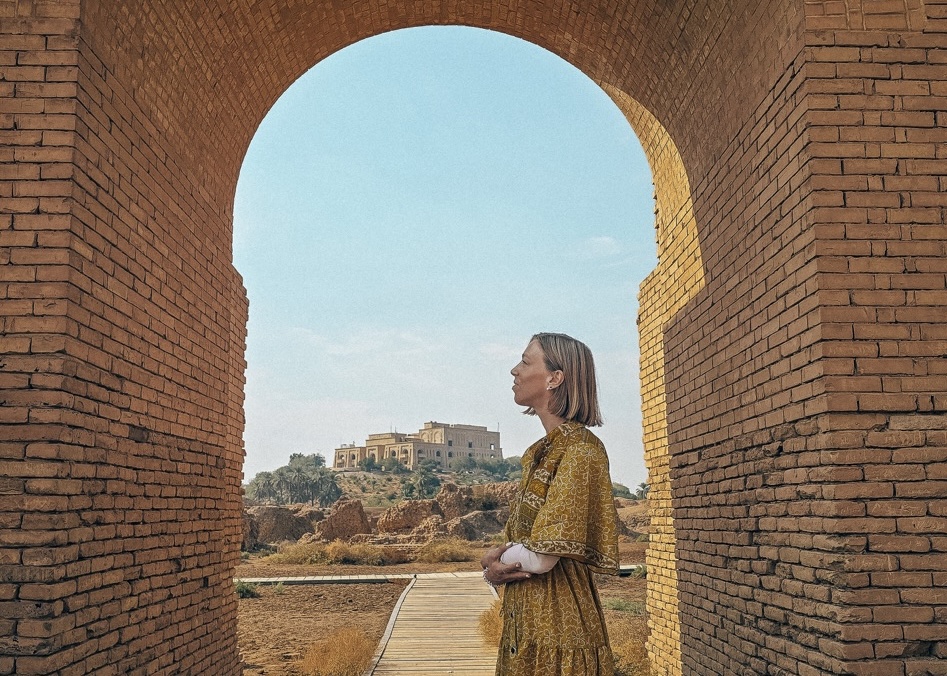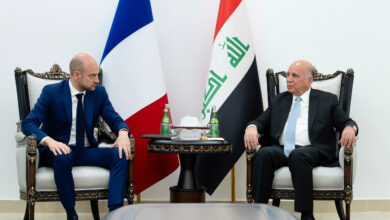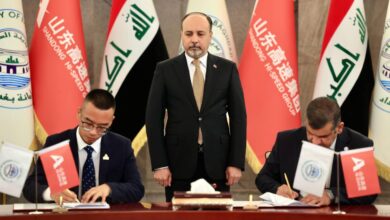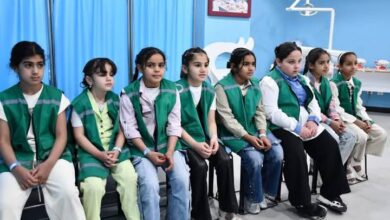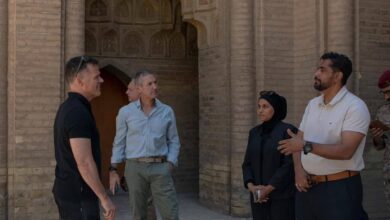In an era where Iraq is often portrayed through the lens of conflict and instability, Luxembourg native Paulina Weis embarked on a journey to challenge these narratives. Through a combination of personal curiosity and the influence of Iraqis in her own community, Weis was drawn to the rich history, culture, and landscapes of Iraq.
What started as an exploration of a country through the stories of others soon evolved into an eye-opening, first-hand experience that shattered misconceptions. This interview shares insights from Weis’ time in Iraq, uncovering the beauty of Iraq and highlighting the deeply welcoming nature of its people.
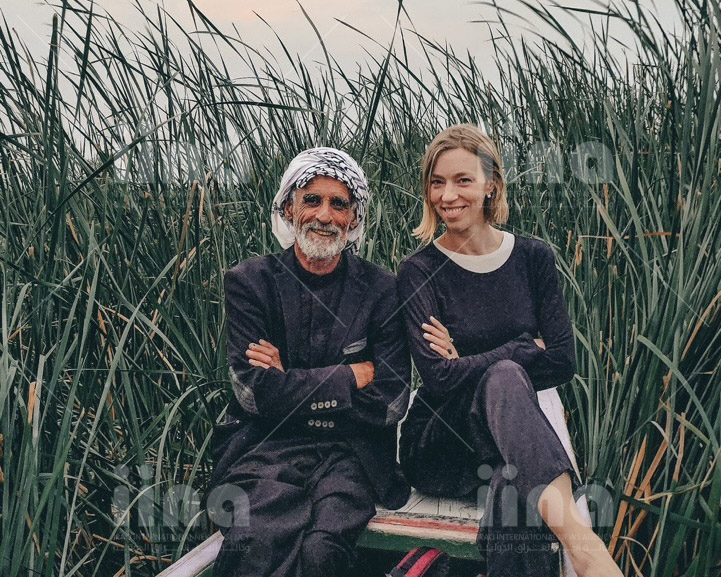
As someone originally from Luxembourg, what inspired your fascination with Iraq, and how did your interest in the country begin?
I would say the interest came through social media because I’d been seeing online content from visitors and some of my favourite content creators, who had been to Iraq, and it just looked so beautiful. It was surprising to see what the country had to offer. That ignited my curiosity to eventually go there myself.
That being said, in Luxembourg, which is incredibly diverse, we are lucky to have a large Iraqi community. There is this strong presence of Iraq in Luxembourg, but I realised I knew very little about it. I had a negative image in my mind initially, yet the content I saw online was very different to what I had read in the news about the country.
I guess it was a combination of these things that pushed me to finally make the decision to go and visit. Then, during 2021, I was based in the Emirates and worked at EXPO 2020. When that had finished, I was looking to go somewhere new, and that was Iraq. However, back then, due to COVID restrictions, I couldn’t, and so I went some time later. Having been influenced by social media, I started posting on my Instagram, ‘Paulina on the Road,’ to contribute to a brighter narrative about Iraq.
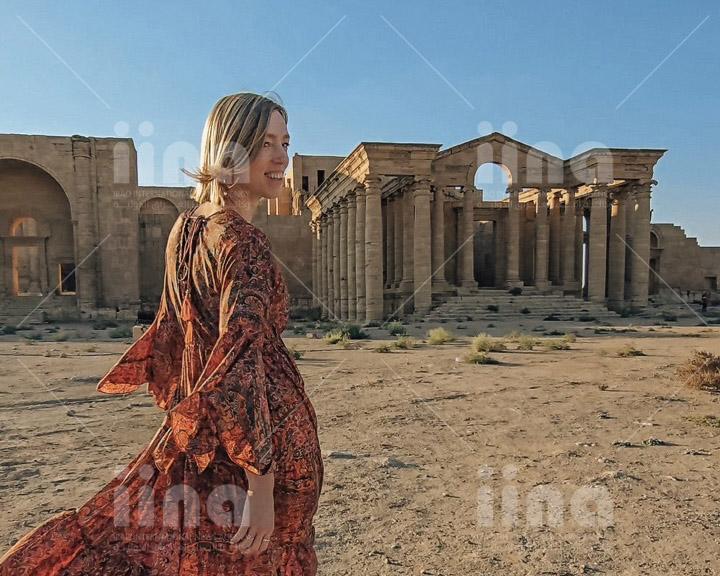
What were your biggest expectations before travelling to Iraq, and in what ways did the reality surprise you?
Let me be very honest. I didn’t have a lot of expectations because there’s so little information out there. What I did know, after travelling to the UAE, Yemen, Oman, and Jordan, was to anticipate a sense of hospitality, kindness, and welcomeness – if that’s even a word.
It went beyond everything I had experienced by then. It was much more than what I would have expected in terms of visiting a country as a foreigner. Of course, there’s the culture, the history, and the landscapes. I went there with an open mind, thinking, ‘Okay, let’s see how it goes.’ I think it’s when you have no expectations that you have the best experience. Or when your preconceived notions get overthrown – that’s when you have an experience better than you could have ever dreamed of.
When you travel, you learn through the process of travelling. For me, it’s the greatest way of learning. You talk to people, you ask questions, you see the ruins, you witness the customs and experience the traditions. That’s how you learn about the culture and the history of a country. Travel is also a unique way of connecting with people to create bridges between cultures and countries. I consider it important to go and see what’s beyond the headlines.
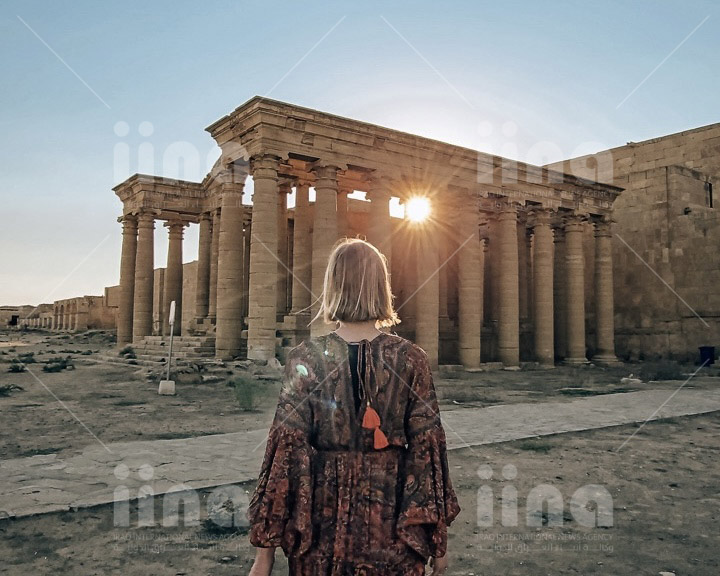
What I kept asking myself was; through all the ups and downs Iraq has endured, how is it possible to find so much joy in the smallest actions and ways of interacting? It was absolutely beautiful and a major life lesson in terms of resilience and being able to enjoy the present moment.
Can you share a particularly memorable moment or interaction from your time in Iraq that left a lasting impression on you?
There were plenty—from the marshes to Baghdad. Being there during the census involved two days of lockdown in Iraq. But if I have to mention one moment, I have it clearly in my eyes and in my mind. It’s when we visited Mosul. It’s a visit that I was greatly anticipating because I had heard so much.
As a Westerner, you hear about Mosul and you have all these traumatising images in your mind. I thought, ‘Oh, it’s going to be dangerous, it’s war-torn, it’s terrible. It’s going to be sad, depressing, and horrendous.’ And it was everything but that. The city is a living statement to resilience, joy and living 120% in the moment. We arrived late after a long trip. I said, “Let’s go and have tea somewhere.” I asked my guide, “Can I go out and roam the streets a little bit on my own?” I wanted to feel familiar with the place and see what it is; I like to roam around alone from time to time.
So, I went out. I went into one of the first shops in Mosul, which were shops managed by women who had lost a family man, or their husband, so that they could make a living. I went into one of these shops, and while I was looking at what they had to sell, someone came in and gave me cotton candy out of the blue. I stood there with my cotton candy as they said, “Welcome to Mosul.”
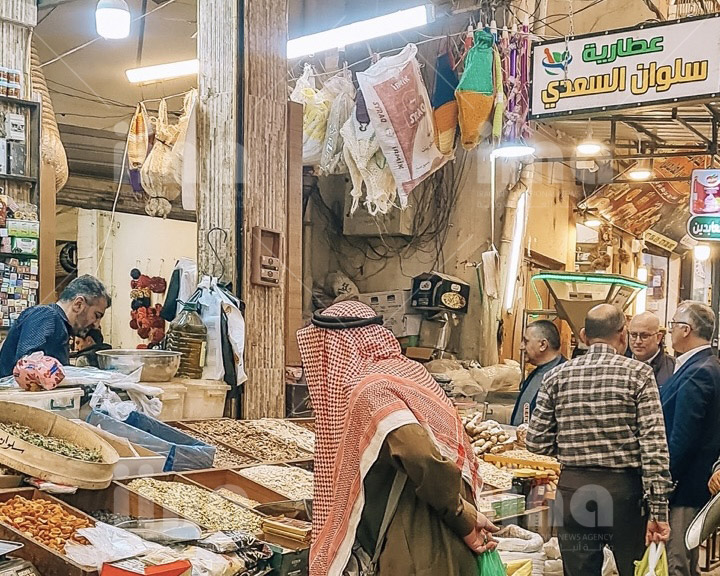
I was looking at the ceramic drawers, wondering what I should buy. I didn’t actually need anything. Suddenly, someone with an Iraqi drum came in, and started singing a traditional song. I thought, ‘Oh, where am I? I’m in the middle of this ceramic shop with my cotton candy. Someone is singing me a song.’ I was completely overwhelmed.
We took pictures. People would come in. Then the shop owner, who was one of the most smiling people I’ve ever met, said: “Just take something, take anything from the store and you don’t need to pay. I told him: “Of course I’m going to pay.” I found a little jar, which I thought was very beautiful – a jar for water. And he said, “Take it.” I was forced to take my money, smash it on the counter and run out, because otherwise, he wouldn’t let me pay for it.
It was such a beautiful first evening in Mosul. Unfortunately, we spent very little time there because of the census, which had compressed our schedule a bit. But I tell you, when I left Mosul (you could ask my guide), I was crying. I was crying. I said, “I want to stay. I want to stay longer. I want to absorb more. I want to discover more. I want to talk more to the people,” because they were so welcoming and wanted to share their stories. Their stories left me in awe.
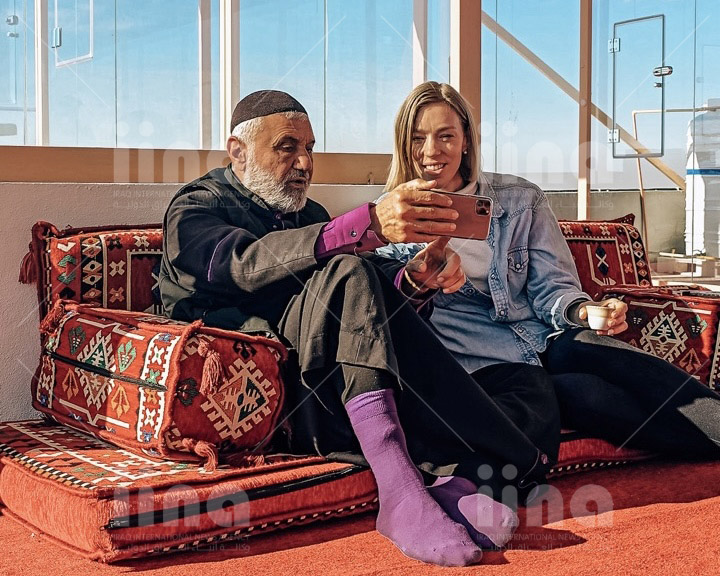
It’s impossible for anyone outside of Mosul, like myself, to understand and feel what they have gone through. They have my biggest admiration. The city is a gem. Seeing how the collective effort of the communities is rebuilding the churches, the mosques— all of it—is absolutely touching. Through this, we can see what people are capable of in a positive sense, but also in the worst sense. It was the worst of people that created this disaster, right? But if you see what happens when people decide to bring out the best in themselves and create something, then we see what’s possible. I truly think Mosul is a ‘must-live’. It’s not a ‘must-visit’. It’s a ‘must live’.
What challenges did you encounter whilst travelling in Iraq, and how did you overcome them?
To be honest, I didn’t face any struggles or challenges at all. I was very well accompanied by a driver and a guide from the agency that I travelled with. I’m also an uncomplicated person. Perhaps when it came to paying, I love to pay for everything by card. I had to carry an old paper envelope everywhere with me. I was feeling like some kind of mafia with my paper envelope! But besides that, there was no challenge. I think the real challenge was for me to leave the place. I couldn’t get enough of it.
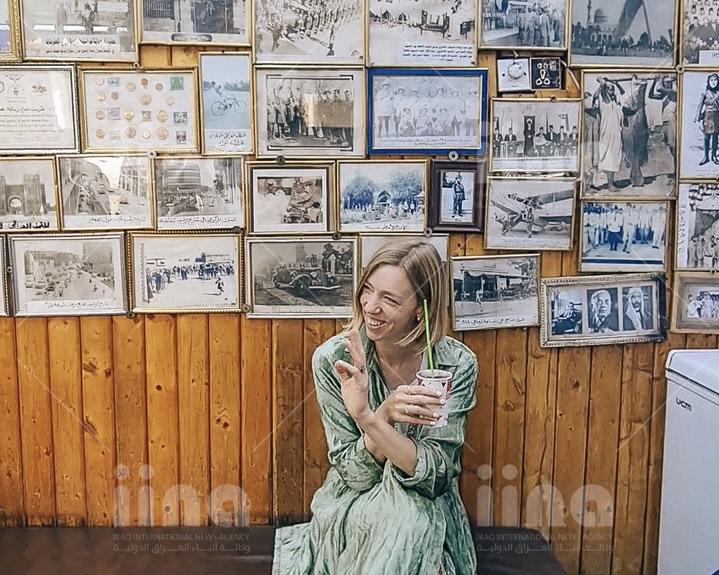
Did you work with any local guides or tourism companies during your travels, and are there any you would recommend to others considering a visit?
Yes, I travelled with Bil Weekend; it’s a family business. They’re doing some fantastic work when it comes to the right mix between meeting with the people, having local experiences, but also getting to all of the ‘must-see’ sites. You get to see Babylon, the marshes, Kurdistan. You get to see so much. They have the perfect mix. Imagine your two weeks with two complete strangers. Luckily, we had the best time. We were singing, we were laughing. I cried when I had to leave Mosul, which was the funniest experience ever.
When we entered Kurdistan’s border control, my guide asked me if I’m alright. And at the thought of having to leave Mosul, I started crying again. Then the guard looked at my guide, and he asked: “What’s happening here? What’s happening? Why is she crying?” It got a little bit uncomfortable, and my guide said, “No, she just wants to go back to Mosul.” The soldier was like, ‘What?’ But that was the truth, actually. I was literally crying because I had to leave Mosul. All of these situations really connected us together, even though it was just two weeks. However, two weeks could be long if you’re with the wrong people. It was really hard to say goodbye, but we are still in touch now. They are now some of my few new Iraqi friends.
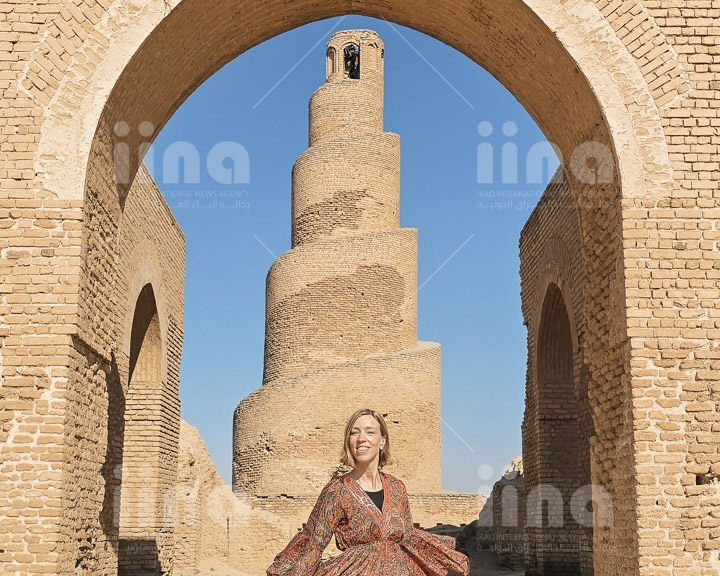
They work with influencers. They know how to present a travel destination. They know how important images and videos are in order to create that. They strongly believe in the power of social media, and I think they’re doing a remarkable job. I mean, their contribution is essential to the promotion of Iraq as a tourist destination.
What advice would you give to someone who’s curious about visiting Iraq but may feel hesitant due to concerns about safety or logistics?
It depends on how big your fear is. First of all, there’s always a possibility to travel with an agency, which makes it really easy and straightforward. Me, personally, I would definitely visit Iraq as a backpacker on my own, just to see how it is, because I felt so safe, happy and cared for during this whole trip. I would love to see how it is traveling solo. There was not a single second during the trip where I felt uncomfortable or unsafe. I felt part of a community, welcomed and really appreciated.
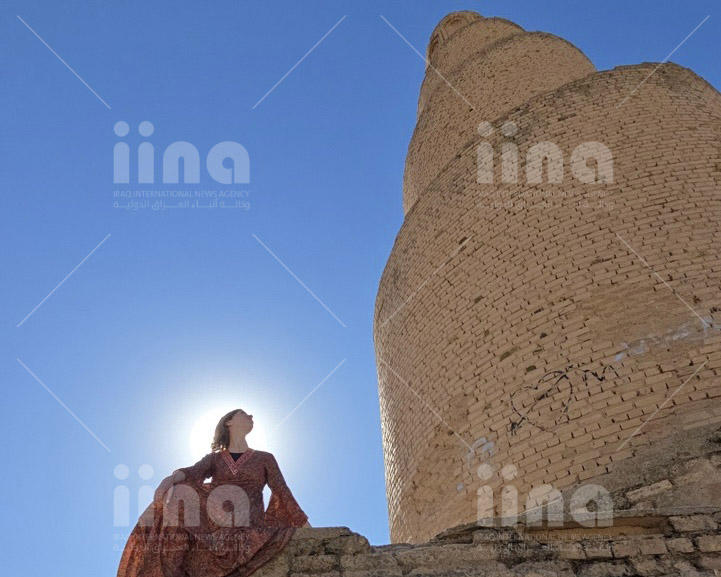
How do you see Iraq’s potential as a travel destination evolving, and what role do travellers play in reshaping global perceptions of the country?
I think Iraq has huge potential. It has the mountains, it has the culture, it has the traditions. It has the food. The food was absolutely mesmerising; some of the best food I ever tasted. I think it’s a place that has so much to offer. Also, it’s a place where travellers can get a glimpse into the heritage we share as humanity. It’s no surprise that Iraq is being called the “Cradle of Civilisation”.
When we talk about the role of travellers… I think we play a pivotal role in reshaping perceptions, because it’s by sharing our personal experiences that we are contributing to change the narrative from one of conflict to one of hope and resilience, as well as cultural richness. Each post, each story and every conversation has the power to open minds and to build bridges between cultures.
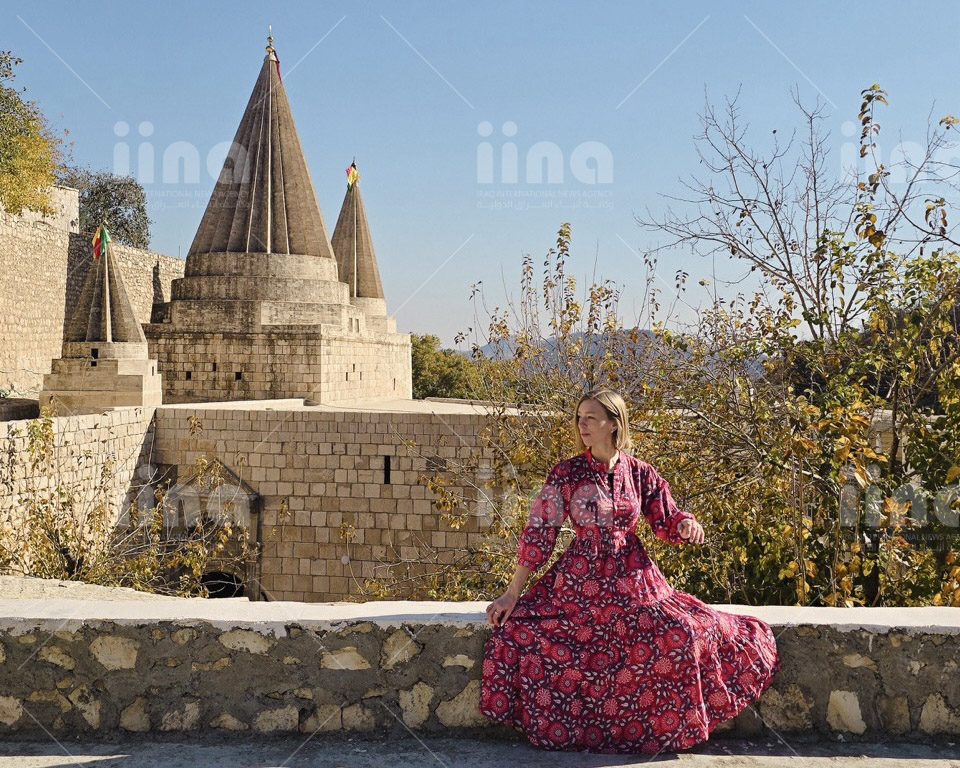
As there are more travellers coming back with positive stories, I definitely see Iraq moving towards becoming recognised as a must-visit destination for culturally curious and highly adventurous travellers. In the long run, I think sustainable tourism in Iraq combined with initiatives that highlight local communities, could be instrumental in fostering economic growth and cultural exchange between the visitors and the locals. With the right support, I honestly believe Iraq can rise to become a unique destination.
The hospitality I have experienced in Iraq is unmatched. I think it’s everyone’s duty, especially today, to focus on humans first and not to let ourselves get dominated by narratives that are based on cultural divide. We need to focus on who we are as people; what unites us and not so much what divides us.
I think travelling is a way in which we can easily get in contact with people, and realise that all of those clickbait headlines are often mismatching what we actually experience. When it comes to my social media presence, it’s intended to build a bridge between Iraq and the people that might not have my crazy sense of adventure. I want to share that with them, and I’m always very happy to explore further opportunities to contribute to Iraq’s tourism narrative.
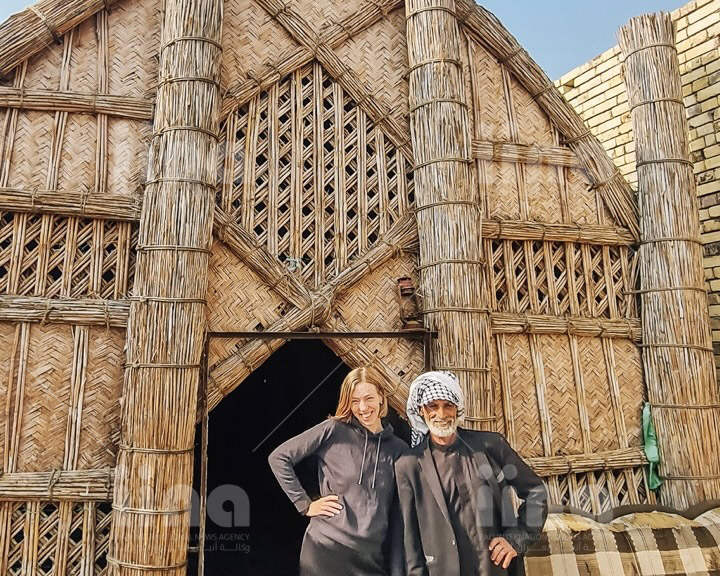
Paulina Weis’ journey is a testament to the power of travel in breaking down stereotypes and fostering understanding. Through recounting her experiences in Iraq, Weis calls attention to the country’s considerable potential and the resilience of its people, encouraging others to discover the nation’s hidden treasures.
Too often, narratives are oversimplified. Personal stories like these can play a key role in reshaping how Iraq, the esteemed ‘Cradle of Civilisation,’ is viewed, one travel experience at a time.
- Published: 23rd January, 2025
- Country: Iraq
- Editor: Justyna Wojtowicz
- Category: Tourism

